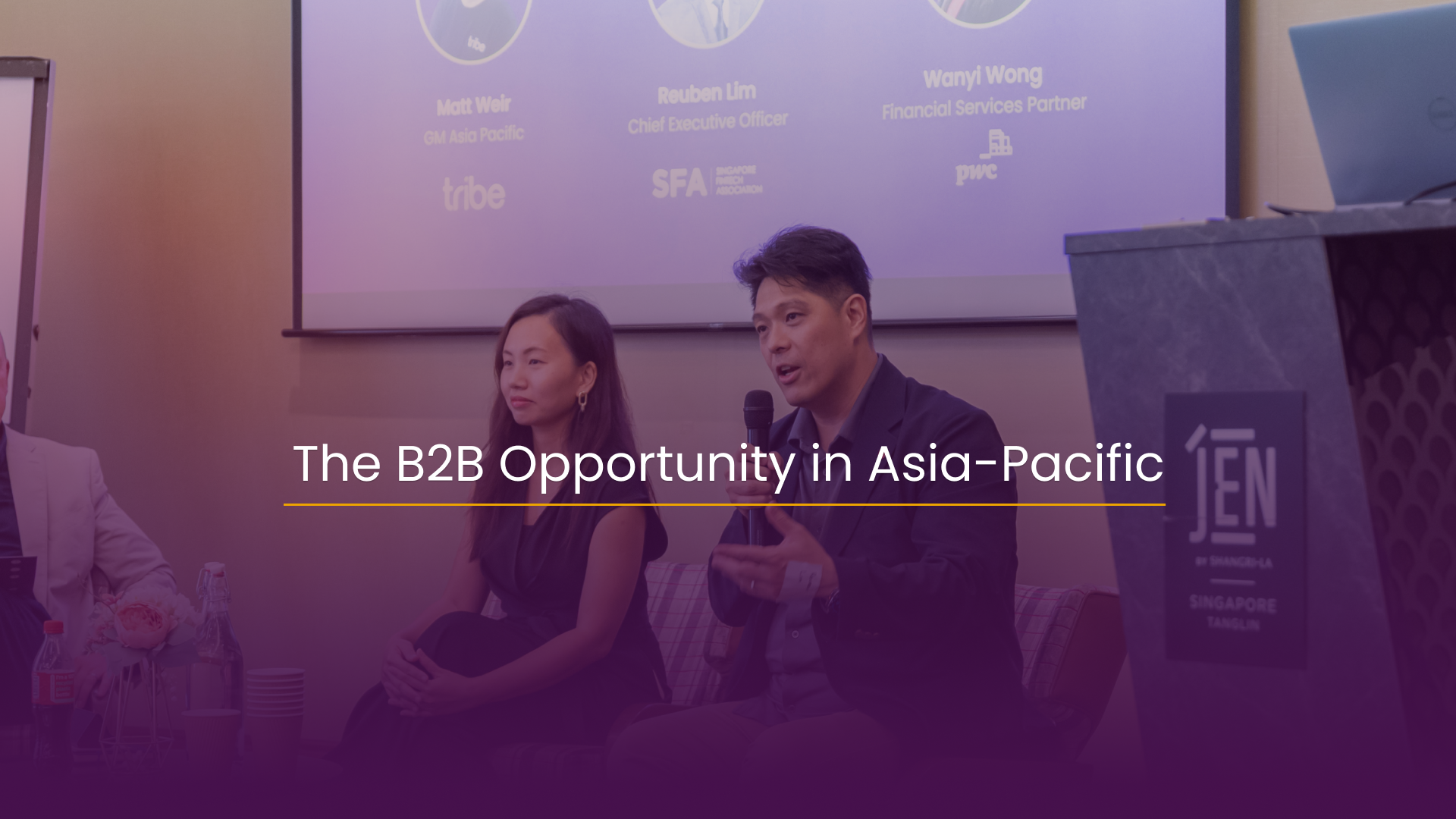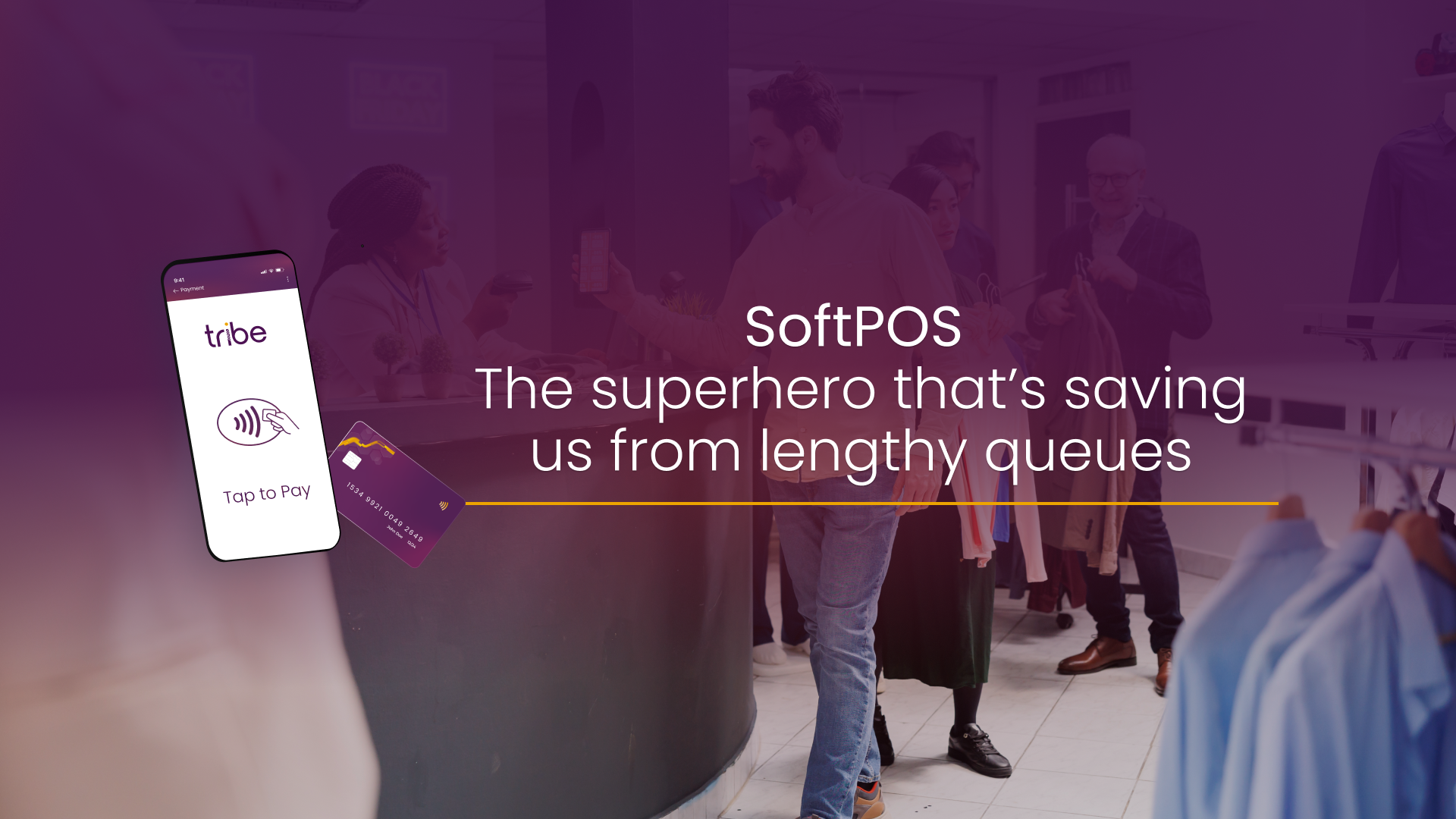The B2B Opportunity in Asia-Pacific
Experts agree that the B2B fintech sector is primed for growth in Singapore and the wider Asia-Pacific region.
- B2B fintechs will bring value faster
- Singapore’s regulatory regime allows fintechs to thrive
- Patience is key
Fresh from Tribe Payments’ recent strategic expansion into the Asia-Pacific region, the company hosted a product and thought leadership launch event in March 2025 to celebrate its new regional headquarters in Singapore.
The afternoon opened with a panel discussing The state of p(l)ay with fintechs in Singapore. Matt Weir, Tribe’s GM Asia-Pacific, was joined on stage by Reuben Lim, CEO of the Singapore FinTech Association, and Wanyi Wong, Fintech Leader and Financial Services Partner at PwC Singapore.
What are the challenges and opportunities for fintechs in Singapore? And what are the differences between the country and its neighbours? The trio discussed these at length and we summarise some of their key points below.
The ‘disruptor’ misnomer
As fintechs proliferated in Europe in the 2010s, they quickly became synonymous with the term ‘disruptor’ – a buzzword that still lingers to this day, especially when it comes to those companies in the banking world. However, the reality in the mid-2020s is that the fintech scene has matured and fintechs and banks will more often than not be partners.
“Here in Singapore, fintechs have always been viewed as partners, or even with a partner-customer synergy,” says Wong. “For example, a bank chooses to work with a fintech because they know they have found a niche problem that they can solve, and it saves them from investing time and money.
“Banks also look towards fintechs in terms of making sure that they are on track, to make sure that they don’t get too complacent. Fintechs generally serve as a great ‘what’s changing’ barometer.”
Lim added: “These fintechs will generally have a bank account, so they are still being serviced by the bank, hence the dual relationship.
“Look at the bank-fintech relationship like that of co-working spaces to traditional office space. They are not trying to takeover but there is a place for them to work side by side.”
“Here in Singapore, fintechs have always been viewed as partners, or even with a partner-customer synergy.”
Wanyi Wong, FinTech Leader and Financial Services Partner at PwC Singapore
The challenge of fragmented markets
The panel discussed at length the uniqueness of each market in Asia-Pacific and the challenges, opportunities and regulatory hurdles that come with it. Lim advocated for fragmentation being a positive: “My personal opinion is that I love a fragmented market because it’s harder to monopolise so creates many more opportunities for fintechs.”
Both Lim and Wong agreed that having any region-wide regulations is unlikely to happen, but that doesn’t mean they can’t work together. “There will never be regulatory harmonising because every country will always have their own dos and don’ts,” said Lim. “But every country in Asia-Pacific is very progressive and respects the importance of payments and financial inclusion.”
- Download: The Singapore FinTech Association and PwC teamed up to publish FinTech’s state of play 2.0 in October 2024, which takes stock of Singapore’s FinTech landscape.
The B2B opportunity
One of the key findings in the joint SFA and PwC Singapore report was how B2B companies were really taking off. “I have seen many B2C companies getting into B2B,” said Lim. “Singapore is a trusted place to do business with a mature fintech scene, welcoming both new challengers, but also allowing our own fintechs to spread their wings. Notably 100% of our members do business outside of Singapore.”
Wong commented: “Across the fintech ecosystem, B2B opportunities came through loud and strong in our report. When fintech started, there was a lot of B2C – and it was all about getting market share, but that became very expensive. Companies have recognised the relatively untapped potential of B2B and I think the payments space is ripe for growth in the next 5-10 years.”
The panel collectively discussed how consolidation could happen in the next decade as multiple players have good but individually unsustainable solutions.
“We have seen many successful fintechs branch out to Singapore and they all had one thing in common: They understood that they need to be patient in the region."
Reuben Lim, CEO, Singapore FinTech Association
Patience is a virtue
For all fintechs reading this and thinking of booking the next flight to Singapore and dreaming of global domination, Lim shared some words of wisdom: “We have seen many successful fintechs branch out to Singapore and they all had one thing in common: They understood that they need to be patient in the region.
“Singapore welcomes innovators and they can really thrive here – but they have to be prepared for the time it takes to build friendships, to build partnerships, and to get the right licenses if necessary.”
Wong concluded: “Singapore’s excellent regulatory regime means that we’re a great place for business to launch a regional headquarters, and we’ve seen a lot of businesses come here and thrive from that – especially in the B2B space.”
%20-%20144.jpg?width=1200&height=800&name=250327%20EPS%20X%20TRIBE%20(FULL%20ALBUM)%20-%20144.jpg)
Matt Weir, GM Asia Pacific at Tribe Payments, holds court with Wanyi Wong (PwC) and Reuben Lim (Singapore FinTech Association)










.png?width=137&height=90&name=Payments%20Awards%20(1).png)


.png)